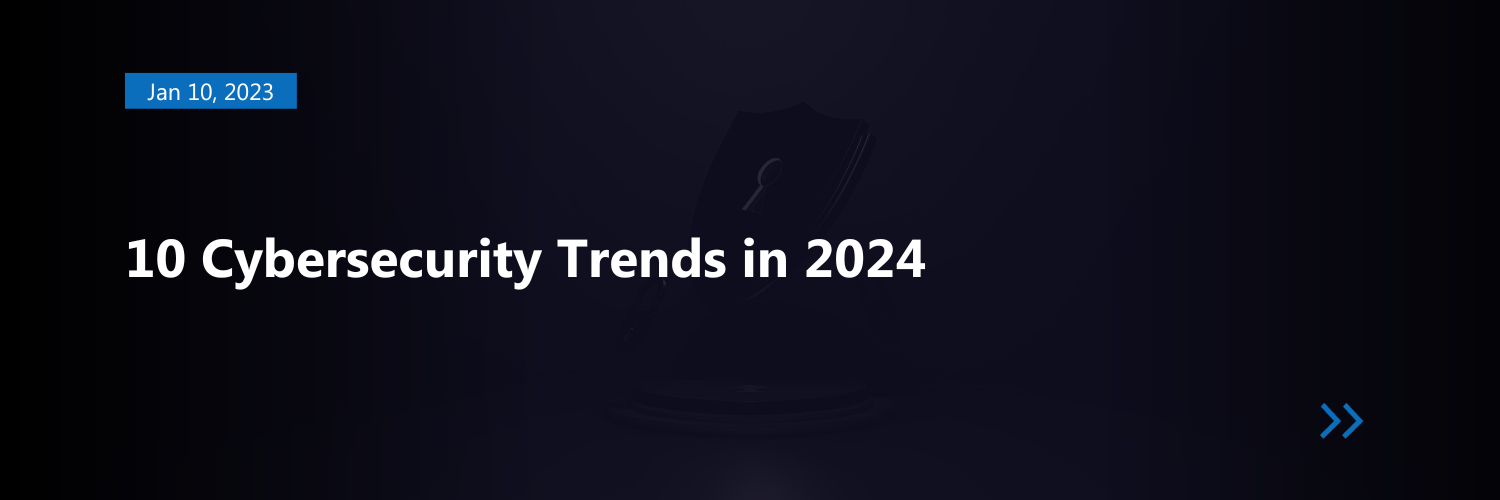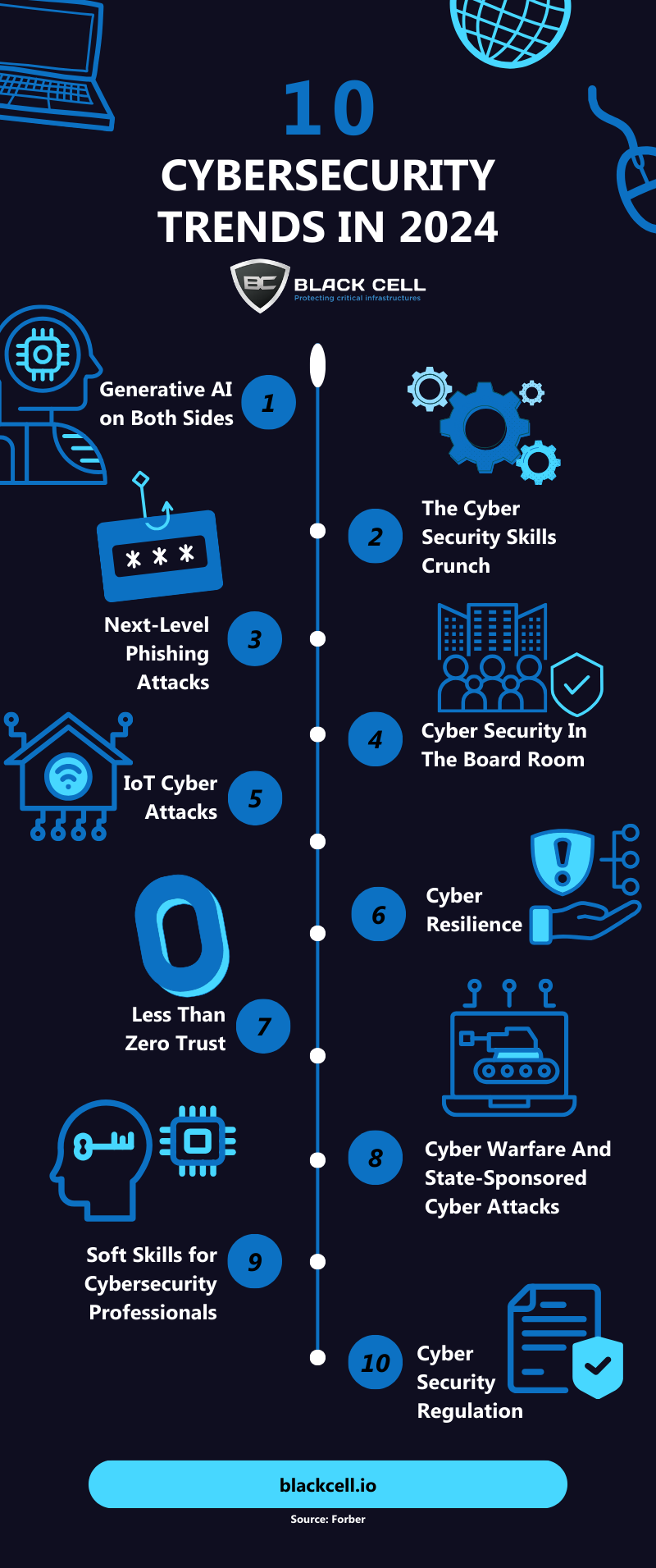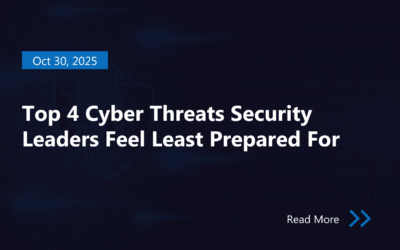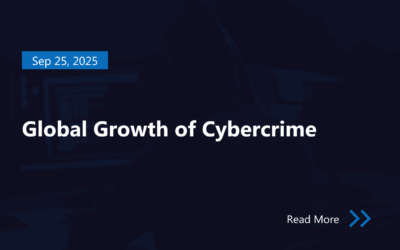As we gear up for another year in the digital realm, let’s unravel the cybersecurity trends that will shape the landscape in 2024!
- Generative AI on Both Sides: As AI sophistication skyrockets, expect AI-powered attacks, from deepfake social engineering to adaptive malware. Simultaneously, AI becomes a key ally for real-time anomaly detection, smart authentication, and automated incident response.
- The Cyber Security Skills Crunch: The shortage of skilled cybersecurity professionals persists, prompting increased salaries and robust investment in training and upskilling programs.
- Next-Level Phishing Attacks: Brace for sophisticated social engineering attacks leveraging generative AI, like ChatGPT, enabling attackers to craft smarter, personalized approaches. Deepfake attacks will surge, emphasizing organization-wide awareness, education, and the integration of AI and zero trust.
- Cyber Security In The Board Room: Cybersecurity transforms into a strategic priority, transcending IT silos. By 2026, Gartner predicts 70% of boards will feature a member with cybersecurity expertise, enabling proactive defense and seizing new business opportunities.
- IoT Cyber Attacks: The proliferation of interconnected devices amplifies cyber risks. The work-from-home trend heightens threats from improperly secured devices, emphasizing the need for robust IoT security standards and protocols.
- Cyber Resilience – Beyond Cyber Security: The shift from cybersecurity to cyber resilience gains prominence. Organizations prioritize building the capacity to recover swiftly after a breach, minimizing data loss and downtime.
- Less Than Zero Trust: The concept of zero trust evolves into an adaptive, holistic model. Continuous AI-powered real-time authentication and activity monitoring extend beyond corporate networks to encompass remote workers, partners, and IoT devices.
- Cyber Warfare And State-Sponsored Cyber Attacks: Cyber warfare becomes inseparable from military operations globally, with a focus on disrupting infrastructure and espionage. State-sponsored cyber attacks intensify during major elections worldwide.
- Soft Skills for Cybersecurity Professionals: Cybersecurity professionals embrace more complex roles, encompassing technical and socio-cultural aspects. Soft skills such as interpersonal communication and problem-solving become pivotal.
- Cyber Security Regulation: Governments and organizations respond to cyber threats with stringent regulations. Initiatives like the Product Security and Telecommunications Act in the UK set minimum security requirements, influencing global cybersecurity agendas.
Stay ahead of the cyber curve – 2024 promises challenges, but also opportunities for innovative defense strategies!
Source: Forbes
Author

Gergő Gyebnár
CHIEF EXECUTIVE OFFICER
With over a decade of experience in IT security and a background in business development and leadership, he brings valuable expertise to the role. As CEO, Gergő is responsible for leading the expansion of Black Cell’s OT Security and Detection Engineering services worldwide.
Related Posts
Top 4 Cyber Threats Security Leaders Feel Least Prepared For
Even the most experienced security leaders admit they’re not fully ready for every threat lurking...
Global Growth of Cybercrime
In today’s hyper-connected world, cybercrime is no longer a distant threat - it’s a looming...





